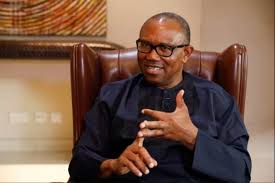Former Labour Party presidential candidate, Peter Obi, has criticised the Bola Tinubu administration for what he described as the disorganised and poorly executed removal of fuel subsidy and the floating of the naira. Speaking in an interview on Arise TV on Monday, Obi said while the policy decisions themselves were not wrong, their implementation lacked strategic planning and failed to prioritise national productivity.
Obi, who was the Labour Party’s flagbearer in the 2023 general elections, said the economic reforms—particularly the removal of the fuel subsidy and the unification of the foreign exchange market—should have been executed in a more coordinated and transparent way.
“I’ve consistently maintained that I would have removed the fuel subsidy. If you go to my manifesto, there are steps I would have taken to do it in an organised manner,” he said.
He acknowledged that the subsidy regime was riddled with corruption and unsustainable borrowing but questioned how the savings from its removal have been utilised.
“We were told that billions would be saved from the removal of the subsidy and that those funds would be invested in critical areas. We’ve done it. Billions have been saved, but where is it? Where are the funds invested in those critical areas?” he asked.
Obi criticised the government for removing the subsidy without first addressing the nation’s poor productivity levels, especially in agriculture and manufacturing, which he said are essential for economic recovery and attracting investments.
On the issue of floating the naira, Obi explained that devaluing or floating a currency is only effective when a country has products to export and is economically productive. Without production, he said, a devalued currency simply increases economic hardship.
“There’s nothing wrong with floating your currency… but you cannot do this without productivity. What the floating does is that your currency becomes weak so you attract investment and your products become marketable. But when you are unproductive and have nothing to sell, it becomes a double whammy,” Obi said.
Offering his approach, Obi said his administration would have consulted stakeholders, including private sector operators, to agree on prices and structure a clear plan for reinvesting the savings into priority sectors such as health, education, security, agriculture, and power.
“The savings should be channelled to specific critical areas, not shared like other revenue. There must be national planning,” he added.
He also expressed concerns over the government’s current spending priorities, pointing to the Tinubu administration’s massive infrastructure plans like the coastal highway while insecurity and power supply problems remain unresolved.
“If you say our problem is insecurity, then farmers can’t go to the farm. Our problem is a power problem. Let’s deal with those things. Security is more fundamental than roads,” Obi said. “Would you prefer a road to your village when you cannot drive to your village?”
Obi’s comments add to the growing public discourse on the economic direction of the Tinubu administration, which has received both praise and criticism since its inception. While many economists have applauded the removal of the fuel subsidy and FX harmonization as necessary reforms, they have also pointed out that the lack of cushioning mechanisms and poor communication has worsened hardship for many Nigerians.
Meanwhile, supporters of the administration argue that the reforms will take time to yield results and that immediate pain is necessary for long-term gains.
As of now, the government has not publicly responded to Obi’s remarks.
